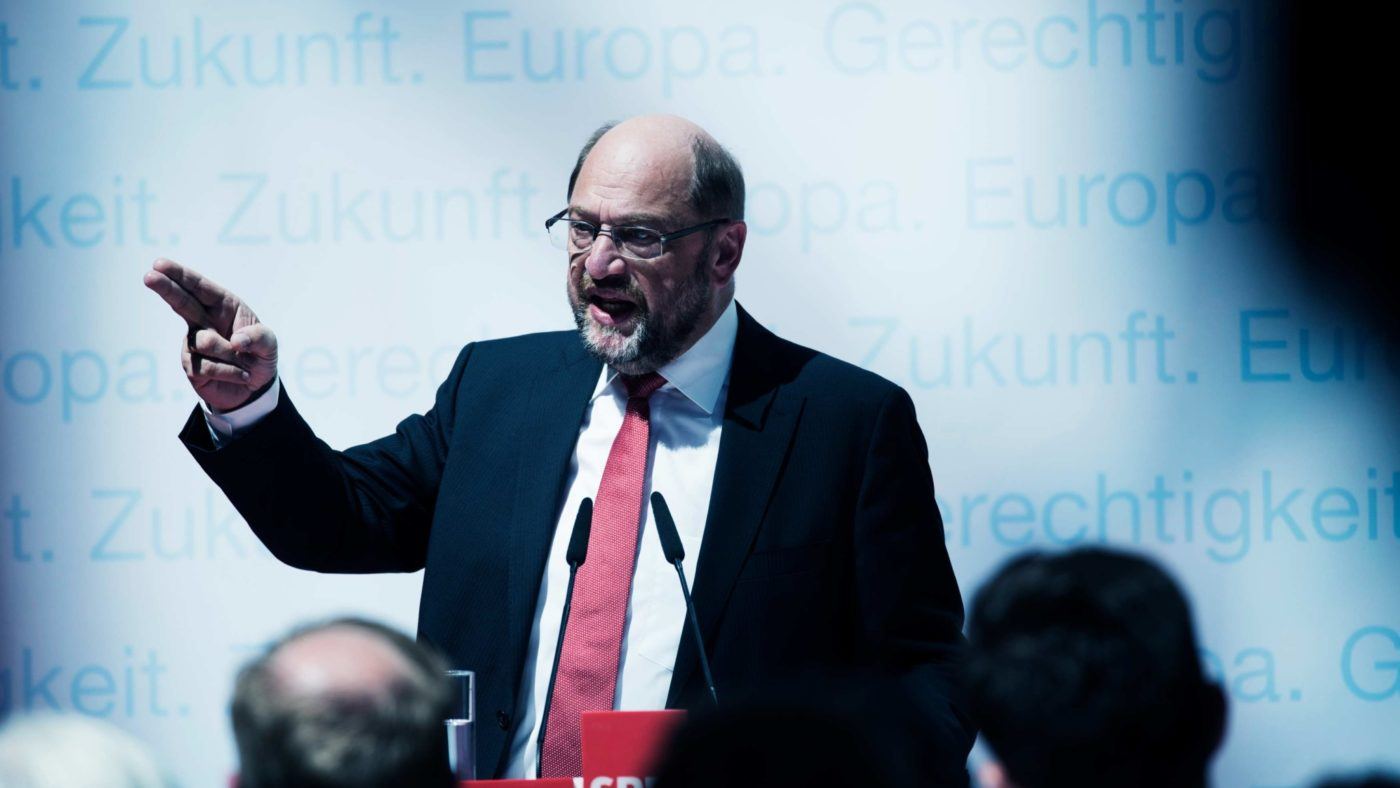He was the SPD’s new hope. Their chance of taking over in Berlin. Martin Schulz, the 62 year-old former president of the European Parliament, was the one to beat Merkel. He was a fresh face – he’d never run for parliament in Germany – and had proved to be a witty voice in the Brussels machine of power. The Social Democrats’ new leader – securing all 605 votes in the leadership election – was a far cry from those usual SPD dull bureaucrats, such as former nominee Peer Steinbrück or Vice-Chancellor Sigmar Gabriel.
But that was in March. By May, they had lost their third state election in a row – this time North-Rhine Westphalia, supposedly the party’s heartland. The SPD is now in a state of shock. The euphoria, after the nomination of Schulz and the surge in the polls – which for an exciting but all-too-short period brought them into line with Merkel’s CDU – has vanished, along with the surge in the polls. And no one, not even the party chairman, has a clue what to do next.
Back in in March, the headlines were all talking about the Schulz effect, as the new leader convinced thousands to join the Social Democrats and seemed to be a convincing challenger to Angela Merkel, who has been leading Germany since 2005.
The Schulz effect seemed to take hold – despite the lack of manifesto or detailed policy. It’s true, the party did gain over 4,000 new members within two weeks of Schulz being elected leader. But, these were probably simply returning members who had fled in despair at the former leader’s lack of charisma – at what you might call the Gabriel effect. And with Sigmar Gabriel gone, those voters flooded back.
Martin Schulz’s nomination gave these anxious Social Democrats hope – the hope that he might be the candidate who could appeal to the centre without giving too much to the far-Left Die Linke, yet appeal to the far-Left without seeming unfit for government. Might this be the man who put the party back on the map after Schröder’s great success. Unfortunately, their hope was short lived.
Chancellor Gerhard Schröder and his Hartz Reforms made considerable changes to the German labour market and shook up welfare. They were unpopular among his party but they helped the Germany weather the adverse economic conditions, with long-term unemployment dropping from 54.6 per cent in 2006 to 45.5 per cent in 2009.
The rate at which the unemployed found jobs, which had been stable before the Hartz Reforms, afterwards “began to increase steadily until the year 2007, at which stage they remained relatively stable at a significantly higher level”.
Schröder faced considerable backlash, as months and years of protests eventually cost him the necessary majority to remain in power. As she took office in 2005, Angela Merkel complimented Schröder on the Agenda 2010, which had the Hartz reforms as its surrounding legislation; she praised the former Chancellor for rising above party politics and unleashing the potential of working Germans.
Schulz is no Gerhard Schröder. He has already called for a reassessment of those Agenda 2010 reforms – reforms that many considered to be against the core principles of the SPD. Lacking Schröder’s charisma and potential, Schulz is known for his sneery and patronising attitude towards various countries as his career picked its way through the Brussels and Strasbourg parliament. He called US President Donald Trump “un-American” and implied that the Irish No-Vote in 2009 “opened the door to fascism”.
He also called Dutch MEP, Daniël van der Stoep, a fascist for asking Mr Barroso, then President of the EU Commission, to publish details of his expenses accounts in 2010. However, outside of a tendency to use profanties in respectable parliament buildings, Schulz has little to offer politically. His years spent in the European Parliament left little mark.
His new role might prove to be as uneventful. Last week, the SPD cancelled a press conference promising to present an outline for the manifesto, only to reorganise it a few hours later.
It transpired the drafting committee hadn’t finished the work, and since many of the areas of interest are still highly controversial within the party, Schulz’s team could only present vague impressions. Those key issues such as retirement or fiscal policy remain completely obscure.
But what is becoming rapidly clear, to voters and observers and party members, is that Schulz’s only real ideological conviction is his absolute support for the European Union. The Schulz effect was invented by journalists and seized on by desperate party functionaries and members, keen to see the renaissance of the SPD and the opportunity to see off Merkel once and for all.
Mr Schulz’s light burned bright for a while, but is fast being extinguished in ballot after ballot. And given the socialist policies that Germany might suffer a return to under Mr Schulz, that might not be such a bad thing.


